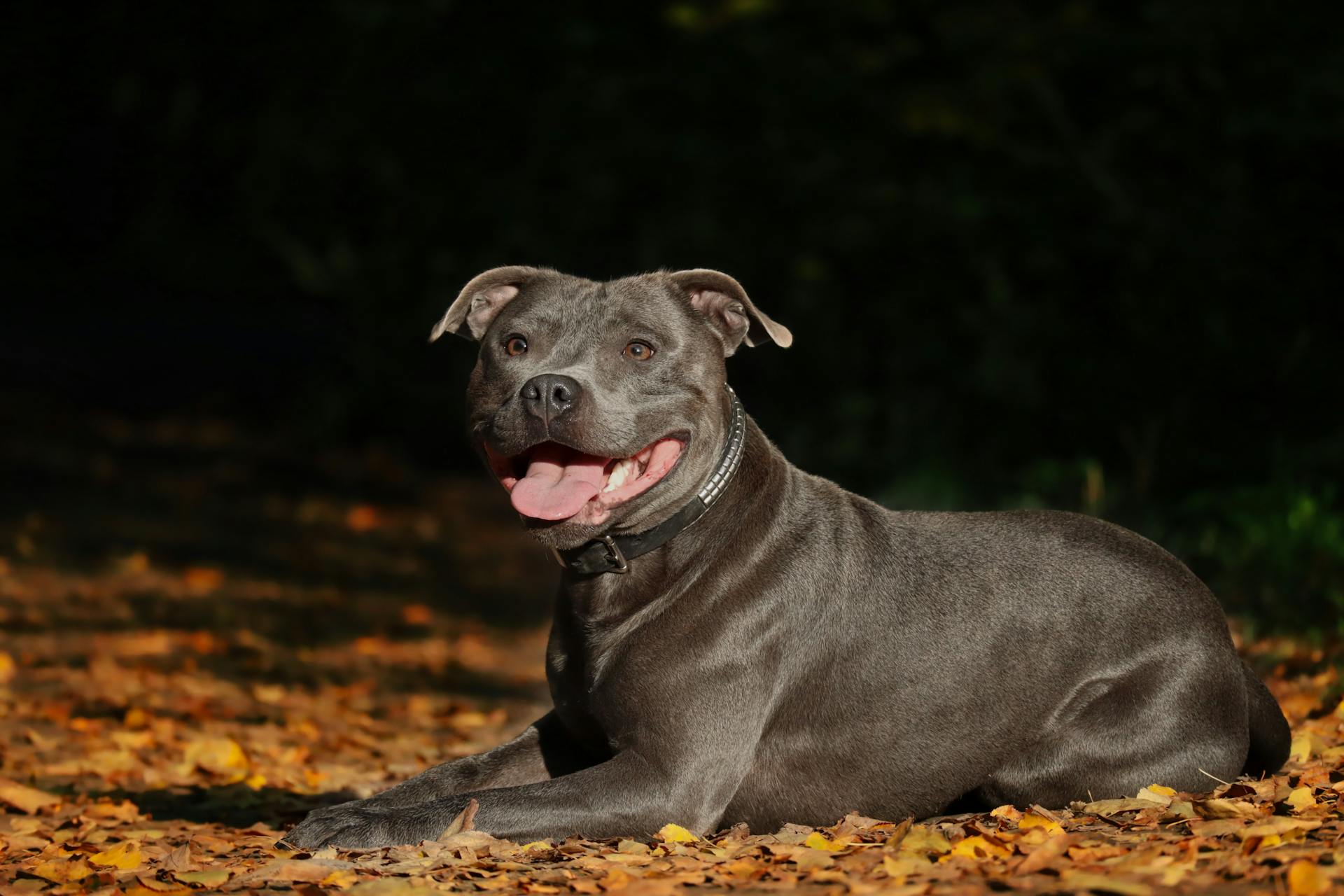
Turmeric has been a long-standing natural remedy for various health issues in dogs, and its potential benefits for canine cancer are a topic of great interest.
Curcumin, a polyphenolic compound found in turmeric, has potent anti-inflammatory and antioxidant properties.
Research suggests that curcumin may help reduce inflammation and oxidative stress in dogs with cancer, which can contribute to tumor growth and progression.
Studies have shown that curcumin can inhibit the growth of cancer cells and induce apoptosis, or cell death, in certain types of canine cancer.
Worth a look: Turmeric Dog Treats Recipe
The Promise of Turmeric for Canine Cancer
Research has shown that turmeric has a demonstrated protective effect against bladder cancer in laboratory rats.
Studies have also found that curcumin can increase the efficacy of chemotherapeutic agents, making it a potential adjunct to traditional cancer treatments.
One of the most promising areas of research is the use of curcumin to destroy and stop brain tumor formation.
Turmeric's anti-inflammatory effects can slow the spread of mammary cancer cells, providing hope for dogs with breast cancer.
Curcumin has also been shown to decrease inflammation and inhibit mast cells in mast cell tumors, offering a potential treatment option for dogs with this condition.
A board-certified veterinarian oncologist, Dr. Kendra Pope, serves on the American Board of Veterinary Botanical Medicine, which is conducting research on the use of herbal medicine for animals, including turmeric.
Here are some key benefits of turmeric for canine cancer:
- Slows the growth and survival of tumor cells
- Decreases inflammation and inhibits mast cells in mast cell tumors
- Decreases the side effects of other cancer treatments
- Shows potential in destroying and stopping brain tumor formation
- Slows the spread of mammary cancer cells
How to Use Turmeric for Dog Cancer
If you're considering using turmeric to help your dog with cancer, the most effective way to feed it to them is as a paste called Golden Paste.
Adding a fat like coconut oil to the turmeric powder will help your dog absorb it better.
A small amount of pepper should also be added to aid with digestion.
You can make the Golden Paste recipe by mixing turmeric powder with coconut oil and pepper.
Alternatively, fermenting the turmeric and making a paste without pepper may also be effective.
Interview with Jessica Tartof, DVM, CVA, CVSMT
Jessica Tartof, a veterinarian with expertise in canine cancer, shares her insights on the effectiveness of curcumin, a compound found in turmeric, for dogs with cancer.
Curcumin has been researched as a potential supplement for dog cancer, but its effectiveness depends on the individual dog's situation.
If a dog is receiving high levels of chemotherapy, specifically doxorubicin, curcumin may be beneficial.
Dogs with cancer often experience a phenomenon where they don't run a fever, but their body temperature is elevated, a condition known as hyperthermia.
Research suggests that a daily dose of 15 to 20 milligrams of curcumin, split into two doses and given with food, may be a safe and effective amount.
This amount is likely to be safe and won't cause harm, even if you've been giving your dog more.
Supplements and Treatments
Turmeric has been shown to have anti-inflammatory and antioxidant properties, which may help alleviate symptoms associated with canine cancer.
Cancer is a complex disease, and turmeric may not cure it, but it may help manage symptoms and improve quality of life.
Curcumin, a compound found in turmeric, has been found to have anti-inflammatory properties, which may help reduce pain and inflammation associated with cancer.
Studies have shown that turmeric can be safely given to dogs, with no significant side effects reported.
In addition to turmeric, other supplements such as omega-3 fatty acids and melatonin may also be beneficial in managing canine cancer symptoms.
Some veterinarians recommend a combination of turmeric and other natural remedies, such as aloe vera and green tea, to help manage symptoms and improve quality of life.
Frequently Asked Questions
Can turmeric fight cancer cells?
Turmeric contains curcumin, which has been shown to have anti-cancer effects on cancer cells in laboratory studies. Further research is needed to confirm its effectiveness in fighting cancer.
When should I not give my dog turmeric?
Give turmeric to your dog with caution, especially if they're taking medication or about to have surgery, as it may interact with their treatment or worsen clotting disorders
Sources
- https://www.vosrc.net/blog/alternative-therapies-the-use-of-turmeric-in-dogs/
- https://thrivedogkitchen.co.nz/turmeric-for-dogs-the-health-benefits/
- https://www.healerspetcare.com/blogs/news/the-benefits-of-turmeric-for-dogs
- https://www.dogcancer.com/podcast/supplements/curcumin-for-cancer-in-dogs-dr-jessica-tartof/
- https://www.onevet.ai/turmeric-for-dogs/
Featured Images: pexels.com


